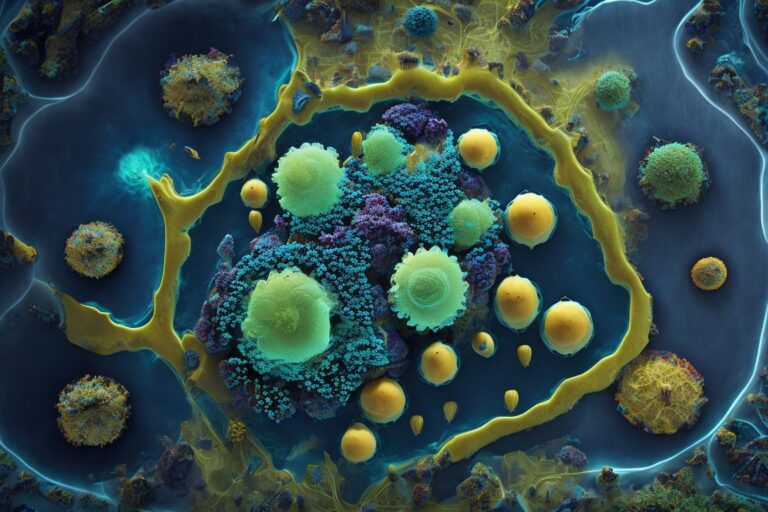Probiotics for Children?
Boosting Immune Health and Supporting Growth
What are probiotics?
Probiotics are live bacteria and yeasts that are good for your overall health, especially your digestive and immune systems. They are commonly found in foods, including yogurt, kefir, and sauerkraut, as well as in dietary supplements.
Why are probiotics important for children?
Probiotics play an essential role in maintaining a healthy balance of bacteria in the gut, which is crucial for immune function, digestion, and absorption of nutrients. Children, who are still developing their immune systems, can benefit greatly from taking probiotics.
Research has found that probiotics can help reduce the risk of various infections, including respiratory tract infections and diarrhea. Additionally, probiotics have been shown to improve symptoms of eczema and allergies in some children.
When should children take probiotics?
Probiotics can be taken daily as part of a healthy diet or to help boost the immune system during times of illness. They can also be taken following a course of antibiotics, which can disrupt the balance of bacteria in the gut.
Choosing the Right Probiotic Supplement
When choosing a probiotic supplement for your child, it is important to look for products that are specifically designed for children and contain strains of bacteria that are known to be beneficial for the immune system.
Scientific Findings:
- Gastrointestinal Health: Research has shown that probiotics can be beneficial for managing certain gastrointestinal conditions in children. Probiotics have been found to reduce the duration and severity of acute infectious diarrhea and antibiotic-associated diarrhea in children.
- Prevention of Necrotizing Enterocolitis (NEC): NEC is a severe intestinal condition primarily affecting premature infants. Studies suggest that probiotic supplementation, particularly with strains of Lactobacillus and Bifidobacterium, may help reduce the risk of NEC in preterm infants.
- Atopic Dermatitis: Some studies indicate that certain probiotic strains, such as Lactobacillus rhamnosus GG and Lactobacillus reuteri, may have a positive effect in reducing the risk and severity of atopic dermatitis in infants and children. However, further research is needed to establish the most effective strains, dosages, and treatment durations.
Uncertainties and Risks:
- Strain Specificity: The effects of probiotics can vary depending on the specific strain and its dosage. It is crucial to identify and use well-characterized strains with proven efficacy for the targeted health condition.
- Safety Concerns: While probiotics are generally considered safe, there have been rare reports of serious infections associated with certain strains, particularly in immunocompromised individuals. Close monitoring is essential, especially in children with weakened immune systems.
- Lack of Regulation and Standardization: The probiotic market lacks stringent regulations, and products may vary significantly in terms of quality, viability, and labeling accuracy. This makes it challenging to determine the exact composition and potency of the probiotics being administered.
- Individual Variability: The response to probiotics can differ among individuals, including children. Factors such as age, diet, gut microbiota composition, and underlying health conditions can influence the effectiveness of probiotic interventions.
- Long-term Safety and Effects: Long-term safety and potential adverse effects of probiotic use in children are not yet fully understood. Further research is needed to evaluate the prolonged use and potential impacts on immune system development, metabolic health, and other aspects.
FAQ
Are probiotics safe for children?
Scientific finding: Probiotics are generally considered safe for children. However, there are rare reports of serious infections associated with certain strains, especially in children with compromised immune systems. Risks and uncertainties: While most probiotics are safe, the safety of specific strains and dosages may vary. It is important to consult with a healthcare professional before giving probiotics to children, especially those with underlying health conditions or weakened immune systems.
At what age can probiotics be given to children?
Scientific finding: Probiotics can be given to children of different ages, including infants. However, specific strains and dosages may vary based on the child’s age and health condition. Risks and uncertainties: There is ongoing research to determine the optimal age and dosage of probiotics for different health conditions in children. Consultation with a healthcare professional is advised to ensure appropriate use.
What are the potential benefits of probiotics for children?
Scientific finding: Probiotics have shown potential benefits for certain conditions in children, such as reducing the duration and severity of acute infectious diarrhea, managing antibiotic-associated diarrhea, and possibly reducing the risk and severity of atopic dermatitis. Risks and uncertainties: The effects of probiotics may vary depending on the specific strain, dosage, and individual factors. More research is needed to establish the effectiveness of probiotics for various health conditions in children.
Can probiotics help with my child’s digestive issues, such as diarrhea or constipation?
Scientific finding: Probiotics have been found to be effective in reducing the duration and severity of acute infectious diarrhea in children. However, evidence regarding probiotic efficacy for constipation is limited and inconsistent. Risks and uncertainties: The efficacy of probiotics for constipation in children is not yet well-established. Further research is needed to determine their role in managing this condition.
How do I choose the right probiotic for my child?
Scientific finding: The selection of the appropriate probiotic depends on the child’s specific health condition. It is important to choose well-characterized strains with proven efficacy for the targeted health condition. Risks and uncertainties: The probiotic market lacks stringent regulations, making it challenging to determine the quality and efficacy of products. Consultation with a healthcare professional can help guide the selection process.
Are there any risks or side effects associated with probiotics in children?
Scientific finding: While probiotics are generally safe, there have been rare reports of serious infections associated with certain strains, particularly in immunocompromised children. Common side effects, if any, are usually mild and transient. Risks and uncertainties: The risk of serious infections with probiotics is rare but should be considered, especially in children with compromised immune systems. Close monitoring is recommended, and healthcare professional guidance is important.
Can probiotics help with my child’s allergies or eczema?
Scientific finding: Some studies suggest that certain probiotic strains may have a positive effect in reducing the risk and severity of atopic dermatitis in infants and children. However, evidence remains mixed, and further research is needed. Risks and uncertainties: While there is some promising evidence, the specific strains, dosages, and treatment durations for allergies and eczema are not yet well-established. Consultation with a healthcare professional is recommended.
How long should my child take probiotics?
Scientific finding: The duration of probiotic supplementation can vary depending on the targeted health condition and individual response. Some studies have used probiotics for several weeks to months. Risks and uncertainties: The optimal duration of probiotic use in children is still an area of active research. It is important to follow healthcare professional recommendations for the specific condition being addressed.
Can probiotics be taken alongside antibiotics?
Scientific finding: Probiotics have been studied for their potential to prevent antibiotic-associated diarrhea in children. Some evidence suggests that certain probiotic strains, particularly Lactobacillus rhamnosus GG and Saccharomyces boulardii, may be effective when taken concomitantly with antibiotics. Risks and uncertainties: While probiotics may help reduce the risk of antibiotic-associated diarrhea, there is still some uncertainty regarding the optimal strains, dosages, and timing. Healthcare professional guidance is important.
Are there any specific strains of probiotics recommended for children?
Scientific finding: Several probiotic strains have been studied in children, including Lactobacillus and Bifidobacterium species. However, the specific strains recommended may vary depending on the targeted health condition. Risks and uncertainties: The selection of specific probiotic strains for children depends on the desired health outcome and requires further research to establish clear guidelines for various conditions.
Conclusion
In conclusion, probiotics can offer numerous health benefits for children by supporting immune function, promoting digestive health, and improving nutrient absorption. As with any supplement, it is always important to talk to a healthcare provider before giving probiotics to your child. Nonetheless, parents can rest easy knowing that by adding probiotics to their child’s diet, they are taking an important step in promoting their overall health and well-being.
Further Reading
– National Center for Complementary and Integrative Health. (2020, August). Probiotics: What You Need To Know. https://www.nccih.nih.gov/health/probiotics-what-you-need-to-know
– Johnson, J. (2020, November 15). Probiotics for Kids: Safety, Types, and Benefits. Healthline. https://www.healthline.com/nutrition/probiotics-for-kids
– Hill, C., Guarner, F., Reid, G., Gibson, G. R., Merenstein, D. J., Pot, B., Morelli, L., Canani, R. B., Flint, H. J., Salminen, S., Calder, P. C., Sanders, M. E. (2014). Expert consensus document: The International Scientific Association for Probiotics and Prebiotics consensus statement on the scope and appropriate use of the term probiotic. Nature Reviews Gastroenterology & Hepatology, 11(8), 506-514. doi: 10.1038/nrgastro.2014.66






